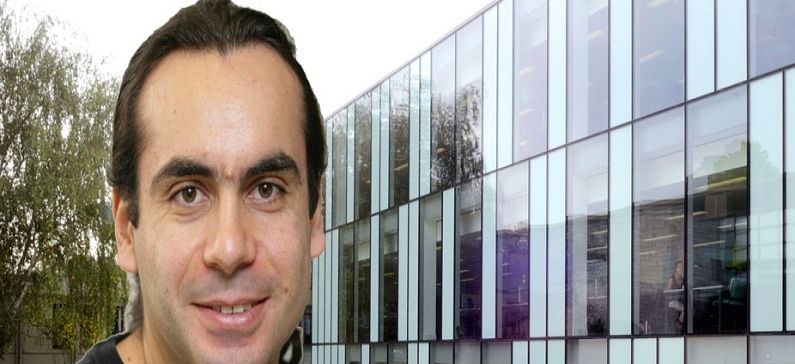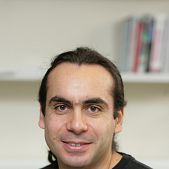
Pioneering research in visual surveillance
Dimitrios Makris is an associate professor at the Digital Imaging Research Centre and Interim Director of the Doctoral Schoolat Kingston University. His research interests are computer vision, machine learning and in particular motion analysis and dimensionality reduction.
His work on learning scene semantic models and on multiple camera surveillance systems has been highly acknowledged by the international research community. He currently works in the area of non-linear dimensionality reduction of time sequences with applications in human action recognition, style modelling and human body tracking.
Dimitrios Makris completed his diploma in Electrical and Computer Engineering and his Master of Engineering at the Aristotle University of Thessaloniki in 1999. He then started his Ph.D. in Computer Vision at City, University of London, which he completed it in 2004. He started working at City, University of London as a lab assistant in 2000 at the courses C/C++, Matlab, Image Processing and Computer Networks. He remained in that position until May 2003.
In October 2003, Dimitrios Makris was assigned as a research associate at Kingston University in the United Kingdom. In 2004, he was promoted to Lecturer and in 2006 to Reader. He remains in this position until today and currently teaches Object Oriented Analysis and Design, Unified Modellling Language (UML) and Image Processing for undergraduate and postgraduate courses.
From January 2001 until March 2005, he was also a visiting lecturer at City, University of London teaching Course for Adults, Introduction to Programming, Introduction to Visual C++ and Unified Modelling Language.
He was the coordinator of the EPSRC Network on Vision and Language (VL-Net), the organizer of the IEEE workshops series on Visual Surveillance (2005-2008), the BMVA/EPSRC Summer School on Computer Vision (2009-2010) and the BMVA technical meetings (2008-2012).
In 2016, Jean-Christophe Nebel and Dimitrios Makris secured £186,590 of funding from the Engineering and Physical Sciences Research Council to develop a CCTV system able to pinpoint the behaviour of people carrying concealed weapons. The new product would allow CCTV systems to automatically scan footage, searching for tell-tale signs that might indicate a person was carrying a firearm and bringing them to operators’ attention if necessary.
“We hope to develop technology that will eventually be applied to the network of 6,000,000 cameras already in place in the United Kingdom, providing an easily-implemented and effective means of helping tackle a problem of national concern,” he said.
Kingston’s Digital Imaging Research Centre is held in high repute for its pioneering research in visual surveillance. Other advances in the use of predictive CCTV systems have already been trialled on the underground and rail network.
Dimitrios Makris has been awarded a number of research project as principal investigator and has been financially supported byEPSRC, TSB, as well as national and international companies.










